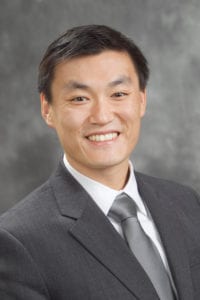 Yang Guo sits at one of the hottest corners of the business world, where advanced quantitative finance meets big data. He runs the pricing data science team at Opendoor, a San Francisco company that seeks to revolutionize home buying and selling. Instead of using real estate brokers, homeowners sell directly to Opendoor, which in turn markets its inventory online. Guo has the critical job of figuring out what price to pay for houses, an especially important problem because Opendoor, unlike traditional brokers, takes on all the risks of ownership.
Yang Guo sits at one of the hottest corners of the business world, where advanced quantitative finance meets big data. He runs the pricing data science team at Opendoor, a San Francisco company that seeks to revolutionize home buying and selling. Instead of using real estate brokers, homeowners sell directly to Opendoor, which in turn markets its inventory online. Guo has the critical job of figuring out what price to pay for houses, an especially important problem because Opendoor, unlike traditional brokers, takes on all the risks of ownership.
Guo credits Berkeley Haas for giving him the tools to work on the cutting edge of finance for example, the dynamic relationship between pricing and risk and how to apply those insights to massive amounts of data.
“For me, Haas was responsible for a stark career change,” Guo says. Before enrolling, he was a compensation consultant with no finance experience. After graduating, he became a trader on Citigroup’s high-frequency foreign exchange trading desk, where he designed high-speed systems to comb through market data faster than rivals, giving Citi an edge. “You can’t find too many compensation consultants who ended up being high-frequency traders,” he says.
At Haas, Guo displayed extraordinary intuition about financial markets and a disciplined way of thinking about risk, talents that helped his team develop a sovereign credit risk model that bested 26 competitors to win the 2012 International Association of Financial Engineers student competition.
Grateful for his MFE experience, Guo returns each year to Haas to guest lecture in Prof. Terrence Hendershott’s high-frequency finance class, showing students how their studies apply in the real world of high-speed trading.